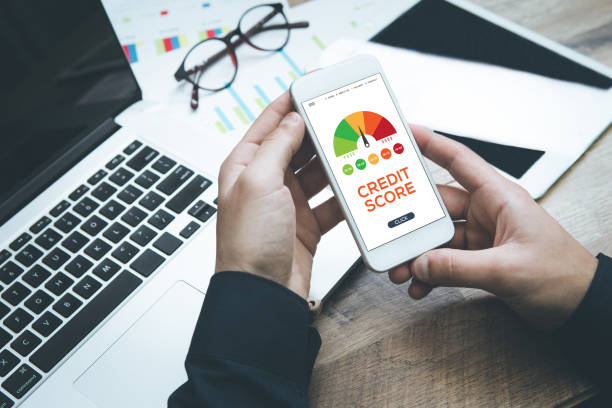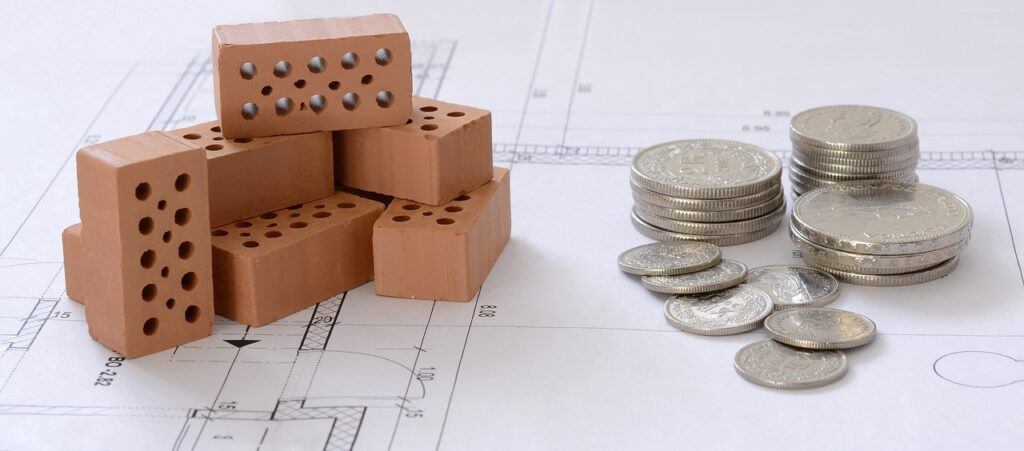Now that you are getting ready to apply for a loan from which you can obtain money for a new home, a car, or to support your personal project, your credit score plays a huge role in determining whether or not you receive the desired financial services. The better your credit score is, the more likely you are to be granted a loan and also to get a lower interest rate and even some more favorable conditions in lending. This all-inclusive guide takes you through various strategies that may help you, as an individual improve your credit score before applying for a loan, thus making you Loan appear as a responsible borrower before your lender.
What is Your Credit Score?
As a precursor to methods that will better your credit score, it’s important to know what a credit score is and how it’s computed. A credit score lone is a three-digit number summarizing a person’s creditworthiness Loan on the basis of one’s credit history. Scores range typically from 300 to 850. The higher the score, the healthier the credit.
**What Constitutes a Credit Score?


Payment History: It accounts for 35% which is the most prominent aspect of your credit history. It considers your pay bill on time. Late payments, defaults and even bankruptcies drastically hurt your score negatively.
Credit Utilization: This is the ratio that showcases what percentage of your available credit you use. More utilization ratios signify worse your score is 30%.
- Credit Age Length (15%): The more time your credit accounts have been open, the better it is for your score. A longer history of credit lone reflects a more dependable borrower.
- Credit Mix (10%): Having different types of credit accounts like installment loans can also boost your score.
- New Credit (10%): This is concerning any new inquiries and newly opened accounts. Quite a number of recent inquiries or new accounts can lower your score.
Improving Your Credit Score: Step by Step
- Get and understand your credit reports
Jump-start your credit score: Get a free version of your report from all three major credit Loan bureaus. You have the right to obtain one free report per year from each credit bureau-Equifax, Experian, and TransUnion-through AnnualCreditReport.com.
Action Steps:
- Order Your Reports: Order a copy of all the reports from all three major credit bureaus. Take them home and go over them very carefully to learn as much as you can about your credit situation.
Check for Errors : There may be false information. For instance, misspelled names, incorrect addresses, or accounts lone that are not yours can all lead to bad credit scores.
In cases of errors, you will report them to the credit bureau. They will subsequently update the information requiring correction.2. Pay All of Your Bills on Time .
Your payments history will be the biggest determinant in your credit score. If you pay all of your bills on time, it may reflect credibility and really helps your score
Action Steps:
- Automate Your Payments: Automate all of your bill payments so that none of the bills are ever late.
Use Payment Reminders-You have calendar reminders or even financial apps that remind you of your due dates
Pay high-interest debts Pay off the high-interest debt first, whatever is your choice of the plan. You must pay minimums on all of the rest; you must also pay all bills on time.
- Lower Your Credit Card Balances


Credit utilization-the percent of credit card balances versus your credit limits-can be very important in determining your credit score. If your credit cards are in use at under 30% capacity, you can bet your score is healthy.
Action Items:
Pay Down Balances: Pay off as much of your credit cards as you can. This will bring your credit utilization ratio down.
For increasing credit limits: You have applied for a hike in your credit card limit, so thereby, your credit utilization ratio will be raised too. And though you spend lesser now than you did before on the previous limit-
You promise to pay more than once in a month: You can commit to paying more than once in a month so that you may keep low balances on the credit cards.
- Not opening new accounts.”.
At the time of opening a credit account, you would have automatically triggered a hard inquiry into your credit report. Many times, such lines can be drawn fairly rigidly if one encounters an in-flow of multiple inquiries on the credit report.
Action Items:
Do not apply for new credit accounts before applying for a loan: Do not apply for lots of new credit accounts before applying for a loan. That hurts your score.
Consolidate accounts: Credit Cards? Consolidate several accounts into fewer accounts, which can make your credit profile more simple, as well as prevent multiple credit cards from doing hard inquires on you.5. Credit Mix
A good credit mix is a mix where one has more than one account with all three major types of credit and does well for your credit. For example, a combination of credit cards, installment loans, and mortgages would give positive marks to your score.
**5. Credit Mix **
Maintain old accounts of credit. Even if you don’t use them, maintain their standing with age, which then lengthens the period of your credit history.
- Spread of Types of Credit: If it is feasible, consider applying for different types of credit. Provided you can attain a small personal loan responsibly, this adds another form of credit into the picture if you have only credit cards.
- Eliminate Negative Accounts
There is actually a true score damage caused by outstanding debts, most especially accounts that have already been sent to collections. Remove these accounts to help in the improvement of your score and overall credit health.
Action Items:
Negotiate settlements: You should reach out to creditors for negotiation of payment plans or settlements in case you cannot pay debts in full.
Update facts: Once the outstanding debts are cleared, check if those have been reflected in your credit report. Accounts paid should be shown as “paid” or “settled.”
- Credit Builder
Finding a balance between clearing negative marks on one’s report is a good attribute of a credit history. It is something that needs to be done to build up a good score over a period of time, reflecting that you are responsible about the use of credit.
Action Steps: Credit Use Wisely: Get the small purchases on your credit cards and pay the account off in full every month. It simply shows that you are responsible about using your credit.
- Become an Authorized User: You may like to become an authorized user in a responsible person’s credit card account. His good history of payments will help your credit report.
8. Track Your Credit In Regular Intervals
Credit reporting and scoring are very elaborate and might provide improvements but no clue on the issues cropping up in the earlier periods. Regular tracking of your credit report and score will help track the improvements and detect early issues.
Action Steps:
- Credit Monitoring: Most credit companies offer credit monitoring and alert mechanisms in case changes are made to your credit report. It ensures that the issue is identified and resolved at an appropriate time.
- Look at Reports Periodically: Keep reviewing your credit reports on a regular basis to ensure it is accurate and check for any new information which may indicate some form of identity theft.
9. Steer Clear Of Major Financial Upheavals
Steer clear of some major financial upheavals that might attract the attention of lenders before applying for a loan.
Action Items:
· Avoid Big Purchases: Avoid big buys and do not incur large debt that could bump up your credit utilization or lead to hard inquiries.
No Major Changes in Finance: Do not apply for new credit accounts, apply for new credit cards, or do any form of significant financial changes shortly after submitting that loan application.
- Consulting a Professional Exper


Make use of financial experts or services which offer credit counselor if you don’t know how to manage your credit or seek advice as to what action you can undertake to improve your score.
Action Steps:
Ask Financial Advisors: You will be advised professionally based on your personal finances by professional experts.
Credit Counseling Service. Non-profit credit counseling agencies can guide on maintaining a cap on debt and improving your credit health.
11. Credit Building Tool
You’ll have various tools and methods, useful for improving your credit score gradually.
Action Steps:
There are also options available such as secured credit cards. If one has some or zero credits, then he may apply for a secured credit card, which requires a deposit amount to be paid for the delivery of the card that serves as collateral to the credit company and helps in building credit, if used responsibly.
- Credit Builder Loans: Many lending institutions provide credit builder loans for the sole purpose of building one’s credit score or enhancing their credit.
- Authorized User Accounts: Above, we discussed how someone can make you an authorized user on their account. In that case, it might help your credit score if that primary cardholder has a clean credit record.
12. Remove Delinquencies
Delinquencies missed payments and accounts in collections can be very detrimental to your credit score. Curbing delinquencies through prompt attention is one of the key steps in the credit repair process.
Action Steps:
- Contact Creditors: If you cannot continue to pay your accounts, communicate with your creditors immediately and get options to repay accounts or forbearance.
Handle Collection Agencies: Once the accounts have been forwarded to lone collection agencies, negotiate an agreement with the collection agency on settling the account and mark it as resolved .
- Manage Your Finance
Proper control over one’s finance will affect whether or not to retain or enhance one’s credit score.
Action Steps:
- Budgeting: This helps in developing a budget which you can adopt to maintain an effective inflow and outflow of funds. That way, you’ll always have enough money to clear your bills and avoid late payments.
Develop an emergency fund so lone that you’ll never be hard put to handle any lone unexpected expense without the intervention of credit cards.
-You need to follow a systematic way of monitoring your expenditure so that you don’t come across a situation where you can be termed indebted and at the same time, your credit utilization ratio is par, or in other words, stands at the peak point. 14. Understand How Closing Accounts Will Affect You
Closing credit accounts sometimes affects your credit score, for instance, closing credit accounts may make you achieve an enhanced credit utilization or reduced credit history length.
Action Items:
- Effects Analysis: Before you close a credit account, determine the effects it has on credit utilization and credit history length.
- Credit Account Closures Strategy: In closing accounts, do it strategically. Close the newer account but keep the older ones open so you’ll have longer credit history.
15. Credit via Daily Spendings
Your responsible use of credit on daily spendings will positively affect your credit score overtime.
Action Steps:
Charge small items and pay your credit cards in full each month. This demonstrates to your creditors that you are responsible with your credit, and this will start building some good credit.
Avoid
